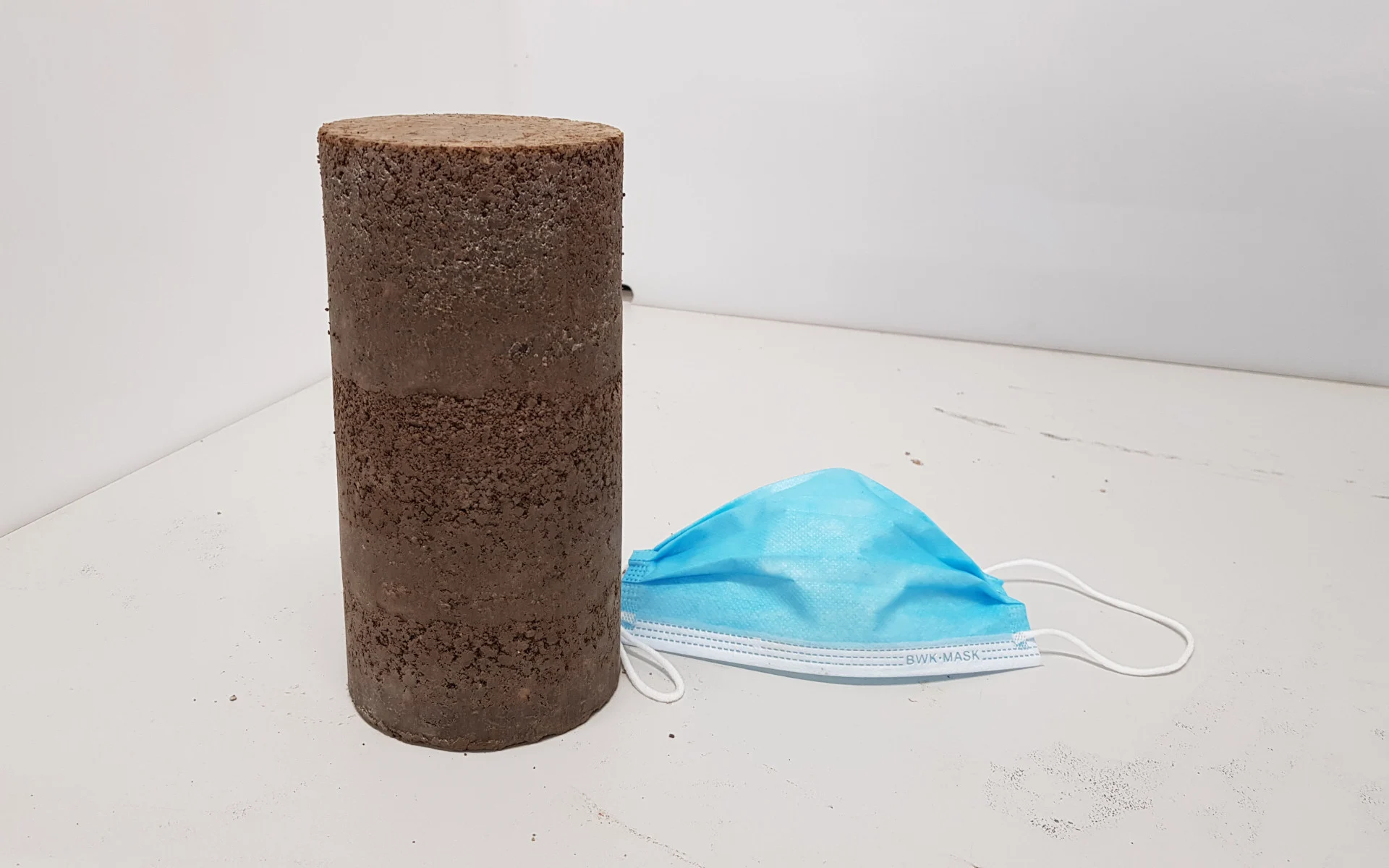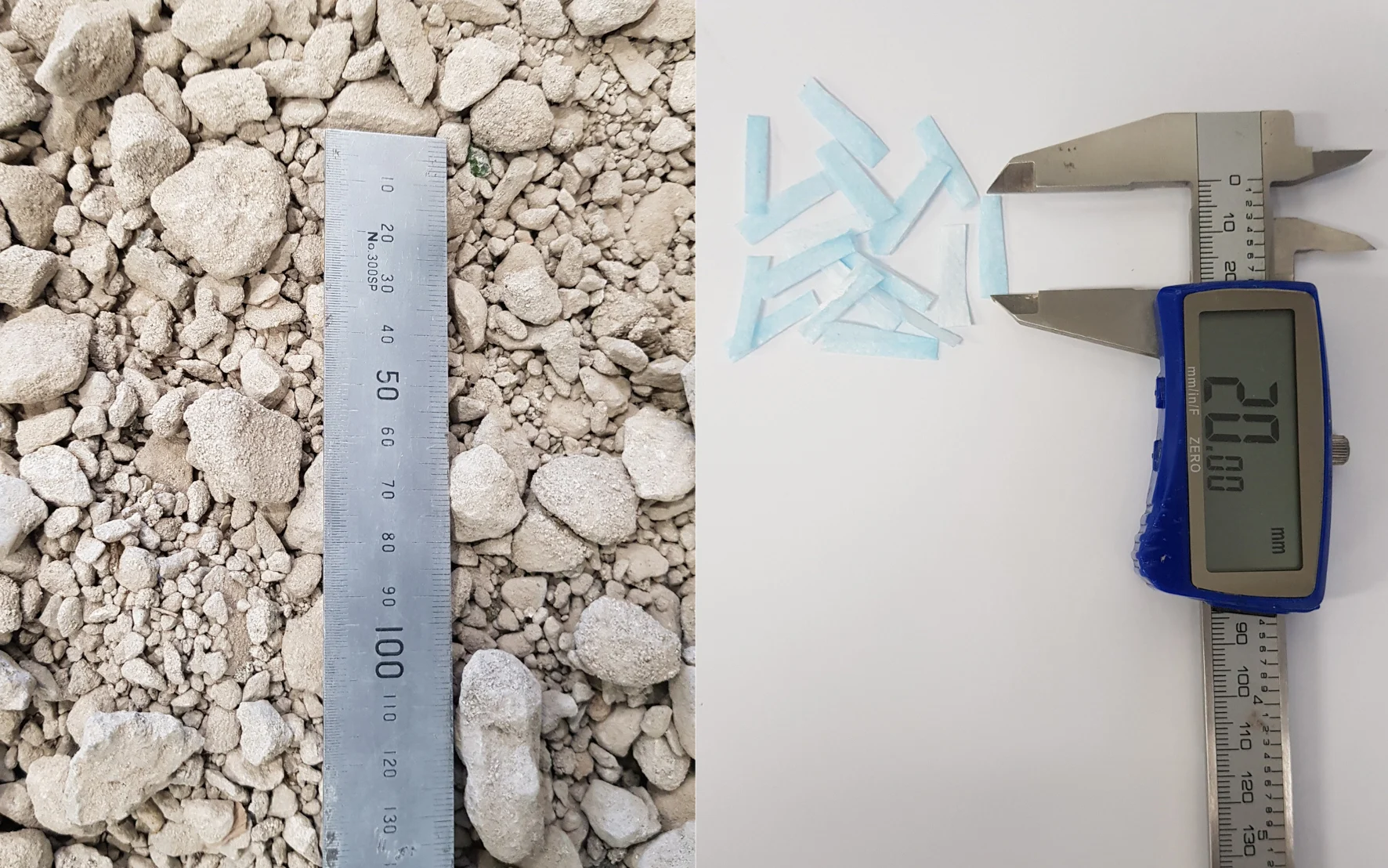
Scientists use discarded face masks to build new roads
The researchers say that their innovation can help reduce pollution and greenhouse gas emissions within the infrastructure sector
Disposable face masks have become a critical accessory that has kept millions of people safe during the COVID-19 pandemic, but it is also causing staggering amounts of plastic waste. To repurpose this growing source of pollution, researchers from RMIT University in Melbourne, Australia have created a solution that turns face masks into a material that can be used to build roads.
The researcher’s study was published in Science of The Total Environment, which details their innovative approach that uses a variety of techniques to transform face masks into a material that can be mixed into a concrete aggregate. The face masks are shredded into small pieces that were 0.5 cm wide and 2 cm long and then mixed into the concrete, which creates a road base, one of the primary layers underneath a road’s surface.

Credit: RMIT University
The volume of shredded face masks in road bases can vary by 1-3 per cent. The researchers found that concrete mixes with 1 per cent face masks can be used to create a one-kilometre road with a width of 7 m and a thickness of 0.5 m, which would weigh roughly 93.2 tonnes—this is the amount of waste detoured from landfills.
The researchers say that their innovation addresses a number of issues within the infrastructure sector. Extracting raw materials releases a significant amount of greenhouse gas emissions and disrupts ecosystems. Compared to other sources of waste, the construction sector is responsible for almost half of the globally generated waste. Using face masks would not only reduce the amount of pollution going to landfills, but it would decrease the volume of raw materials needed, which would significantly cut construction costs.
The study concludes that multidisciplinary collaborations can increase the amount of discarded materials used in geotechnical applications and can be an effective way of addressing waste management issues that have been caused by the pandemic. Since most personal protective equipment worn by front line workers is mainly made of plastics, the researchers hope that their methodology can be applied to other protective items worn during the pandemic.
Thumbnail credit: RMIT University











